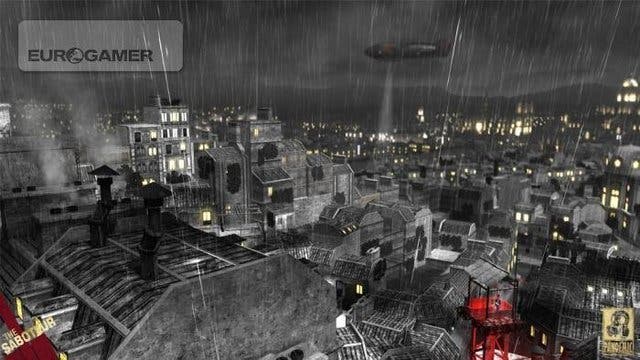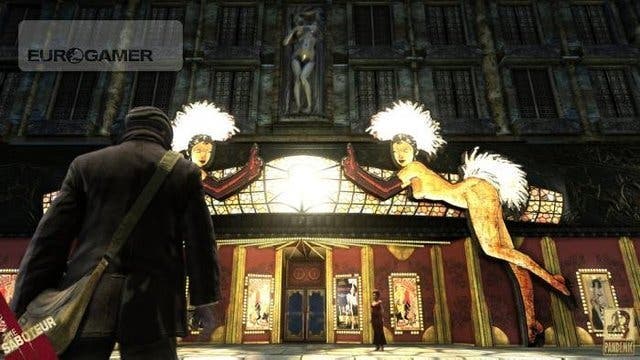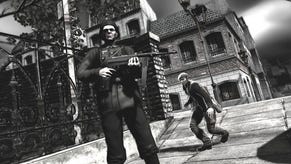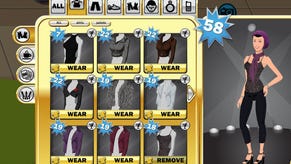The Saboteur
With a push of your button.
While The Saboteur may have taken inspiration from Mercenaries' narrative structure, its visual style is quite distinct. In Pandemic's version of World War II France unoccupied areas are depicted using rich, warm colours - think the vibrant colour palette of films like Amelie and Jean de Florette. The areas where the Nazis have taken control are shown in black and white, with just a few touches of colour; scarlet Swastika armbands and spurts of blood, bursts of orange light as barrels explode, bright yellow gun blasts and so on.
Sometimes objects in the environment will be coloured to give you a hint as to where to go next, as seen in Mirror's Edge. But more obvious influences are Schindler's List (remember the girl in the red coat?) and Sin City ("I was a fan of the comic books even before the movies came out," says French).
"The unique setting of occupied France presented a unique challenge. We knew just taking this vibrant city and plopping Nazis down wouldn't really sell the concept, so we wanted to create a stylised world," French explains. "We looked a lot of film noire, and it's definitely a darkly inspired kind of game. It's grounded in reality, but at the same time it's dramatically enhanced for effect - and that helps make the action and the big moments feel believable."

But producing the black and white sections has been no easy feat. "Honestly, it was extremely hard to pull off... If you just turn off colour you get this flat, grey, monochrome world, which is really hard to navigate in a game like this. That's why we brought colour in."
It's also why they came up with the concept of Will to Fight. When you commit an act of sabotage in a black and white area, the colour will seep back in. The Nazis will disappear and civilians will come out onto the streets, inspired by your bravery. This feature can also be used to track your progression, according to French - climb up to the top of the Eiffel Tower and you can see which areas are in colour and which are still black and white, and therefore how much work you have left to do.

But the Will to Fight isn't only there to look pretty. "We didn't just want it to be a visual gimmick. It also ties into the gameplay," French says. "We're not going into too much detail about that right now, but when you inspire an area you encourage the Resistance to enter that area. So as you work through the game you build up the Resistance, and arm them, and they'll take to the streets and join you in fighting the Nazis."
Other gameplay details are being discussed today, however, such as the emphasis on the "big, blockbuster action" Pandemic is known for. "We give the player a lot of different tools to handle every situation. From races and chases to sneaking and climbing and ziplining, to fighting to shooting and of course sabotage, we wanted all kinds of action," says French.



